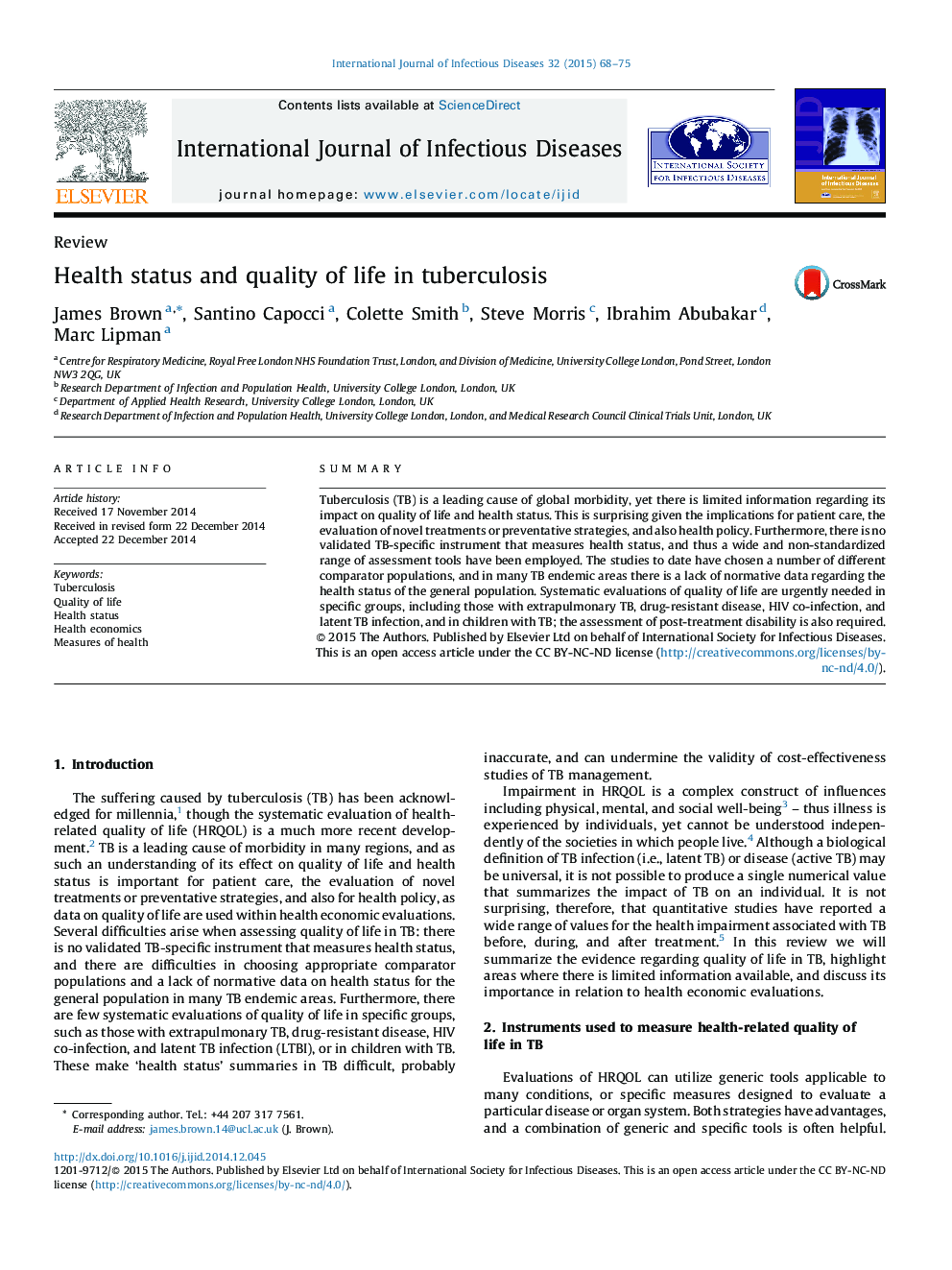| Article ID | Journal | Published Year | Pages | File Type |
|---|---|---|---|---|
| 3362202 | International Journal of Infectious Diseases | 2015 | 8 Pages |
•Despite the global impact of tuberculosis, there are few studies focusing on health status and quality of life.•Many of these are of low quality and have methodological weaknesses.•Specific areas such as extrapulmonary TB, drug-resistant disease, HIV co-infection, latent TB infection, children with TB, and post-treatment disability require urgent attention.•Current health economic data regarding the impact of tuberculosis are inevitably limited by the lack of core information on health status.
SummaryTuberculosis (TB) is a leading cause of global morbidity, yet there is limited information regarding its impact on quality of life and health status. This is surprising given the implications for patient care, the evaluation of novel treatments or preventative strategies, and also health policy. Furthermore, there is no validated TB-specific instrument that measures health status, and thus a wide and non-standardized range of assessment tools have been employed. The studies to date have chosen a number of different comparator populations, and in many TB endemic areas there is a lack of normative data regarding the health status of the general population. Systematic evaluations of quality of life are urgently needed in specific groups, including those with extrapulmonary TB, drug-resistant disease, HIV co-infection, and latent TB infection, and in children with TB; the assessment of post-treatment disability is also required.
